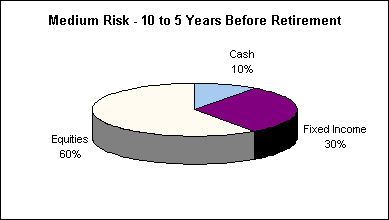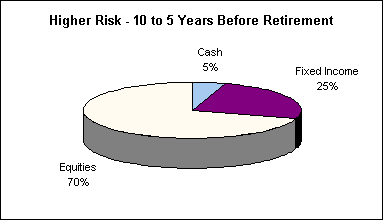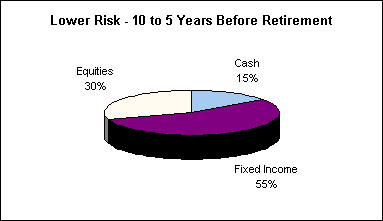Be sure you have an adequate amount of liquid funds for emergencies
Maximize your 401(K) and IRA contributions. These plans give you the power of tax-deferred compounding and allow you to earn interest on money you would have paid to the IRS.
This is a crucial time to save. Your savings should be split between short (i.e., buying a house) and long term goals (i.e., retirement). Long term investments should be aggressive and growth orientated while short-term investments need to be liquid. Due to the wonders of compounded growth, this is probably the best age group to maximize the amount you save.
Balancing the need to support your family, have fun and save for retirement, we believe that individuals should be saving between 15% to 25% of their income
If you have established savings - you should be on a good track. In addition, your mortgage may also be paid off and you can increase savings. Consider how you can increase your savings without diverting from your current quality life or your retirement goals. As you need to spend on items such as college expenses, a second home or dream vacations - be sure that your asset allocations (short vs. long term, aggressive vs. conservative) are appropriate. You need to ensure you have liquidity when you need the cash.
If offered an early retirement package - ensure that you have planned properly and have contingencies should your plan be low.
Ensure that you have disability insurance through your work benefits or get one. The importance of adequate disability insurance can not be underestimated. Disability insurance protects you should you get injured and be unable to work.
Although each individual should plan for their own specific goals and their own circumstances, we have developed the following sample investment asset allocations based on sample risk profiles:
Lower Risk
Medium Risk

Higher Risk

Remember, it is important to understand your overall financial profile and your risk tolerance levels before you begin an actual investment program.
An independent Fee-Only financial adviser can help you structure an appropriate financial strategy to help guide you through retirement.



No comments:
Post a Comment